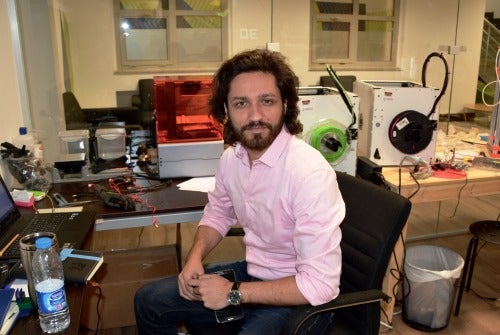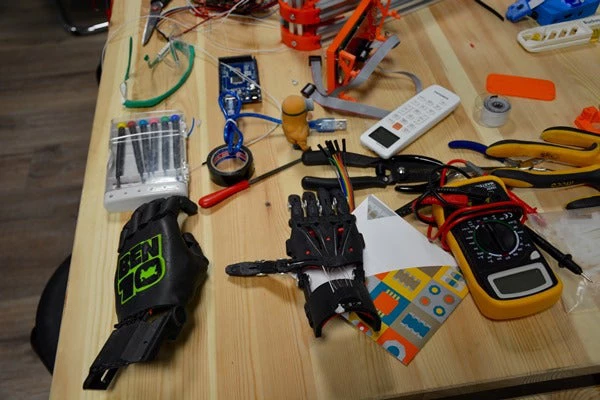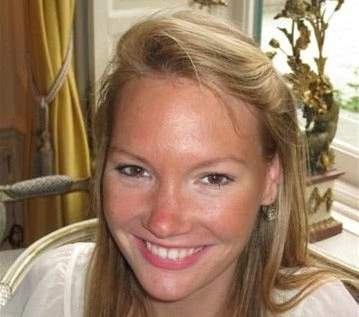
company,3D Mena and a partner in Refugee Open Ware
At the maker space in 3D Mena’s offices in the Jordanian capital’s King Hussein Business Park, 3D printed objects including a miniature mosque alongside an early prototype of a prosthetic hand are scattered across a big table. Today, the final version of the prosthetic hand belongs to Zain, a young Yemeni boy, who has experienced firsthand how 3D-printing can change lives. The 13-year-old was badly burned in a bomb explosion and lost all of his left hand’s fingers. Today he is able to use his left hand thanks to a customized prosthetic hand with the signature of his favorite superhero ‘Ben 10.’
Five years into the neighbouring Syrian conflict more than 250,000 people are believed to have lost their lives as a result of the fighting, and many have lost limbs. To address a great need, the aim is to encourage an open-source movement around 3D-printed prosthetics . The prosthetic hand that the Yemeni boy received cost about US$ 75, a fraction of the current market price for a similar prosthetic.

While visiting one of Amman’s prosthetic centres, Malahmeh tells me how he, together with 3D Mena co-founder and social entrepreneur Dave Levin, met the Syrian refugee Asem Hasna, a former paramedic who lost his leg when his ambulance was bombed in Syria. Hasna, according to Malahameh, was fascinated by the 3D printing process. He studied it for three weeks, and was then able to hack one of the 3D-printers and print in a material which they had never been able to use before. “In no time, Hasna became our technical coordinator,” said Malahmeh. Now, Hasna is training medical specialists in 3D printing. He is currently at FabLab Berlin and has just held his first TED-talk. “The learning curve is very fast,” said Malahmeh with a smile.
Refugee Open Ware believes there are many more ‘Hasnas’ among the 635 000 Syrian refugees in Jordan, just waiting for a chance to unleash their creativity. “They should be considered an opportunity,” said Malahmeh. To him, 3D-printing should be used to solve all kinds of basic needs in the refugees’ daily lives , while at the same time promoting innovation. Hasna, for example, was dependent on a small rubber piece that supports his heel, which normally would cost US$35 and needs to be replaced every 6 months. But with the help of 3D Mena, Hasna was able to design it himself in 30 minutes and printed it in a flexible material for less than US$2. “This is the whole idea,” explained Malahmeh, “To make consumers into producers and thereby democratize the production chain.”
Hasna was not only able to solve his own problem for a low cost but also avoided logistical costs, added 3D Mena employee Tom Chidiac. Had Hasna been living in, for example, the Za’atari camp he would have not only been forced to pay the US$35 US dollars but also face additional hurdles related to ordering the rubber piece in Amman and wait for it to be delivered. Instead, by making 3D-printing accessible to everyone, it cuts out logistical costs, which is estimated to amount to about 60-80 percent of the charges related to humanitarian aid. “This can bring immense benefits to the humanitarian aid sector,” argued Malahmeh.
The Refugee Open Ware is a consortium of different partners including technologists, aid workers, entrepreneurs and medics focusing on humanitarian innovation. Initially the aim was to bring a FabLab to the Jordanian refugee camp Za’atari, home to around 80 000 Syrian refugees. However, due to security concerns the project had to be dropped. Instead they are currently collaborating with UNICEF to establish two mobile innovation labs, basically small-scale truck based FabLabs, which will bring digital fabrication tools to communities where they are not normally accessible. The hope is to still be able to provide individuals living in the camp with training in for example 3D-printing and open-source hardware. Up to now the Refugee Open Ware has received funding from different actors including the National Syrian Project for Prosthetic Limbs and Jordan’s Royal Hashemite Court.
The aim is to have a FabLab up and running in Irbid in northern Jordan, which is about 20 kilometres from the Syrian border and home to more than 126,000 Syrians, by the end of 2016. “It will bring together both Jordanians and Syrian refugees,” explained Chidiac. The incubator will provide the infrastructure, access to equipment to build their own products, the know-how to use the equipment and commercialisation skills, including anything from business development to licensing. The idea is to establish open hardware innovation ecosystems, which are fuelled by co-creation between the refugees and their host communities, as well as connecting them to the global community.
Another FabLab is being established in Amman, just around the corner from their current temporary office and will take up a 500 square meter space. It will become an innovation centre where locals and refugees can use technology to solve problems and innovate. The concept is to make the technology available to everyone, to promote the democratization of what Malahmeh refers to as the ‘next industrial revolution.’ “We’ve seen the impact that this technology can have so now we want to scale it up,” said Malahmeh. His co-founder Levin is expanding in Turkey, hoping to establish a space in both Istanbul and the Syrian border city of Gaziantiep. In the future the team is also hoping to be able to move the technology and know-how into Syria.


Join the Conversation